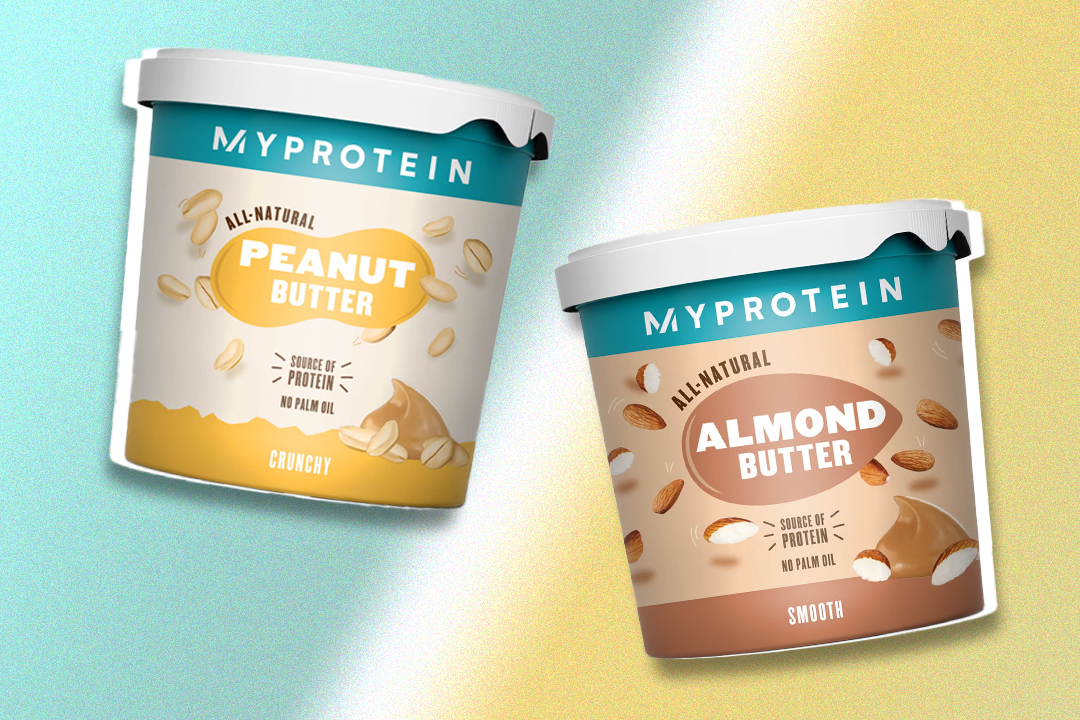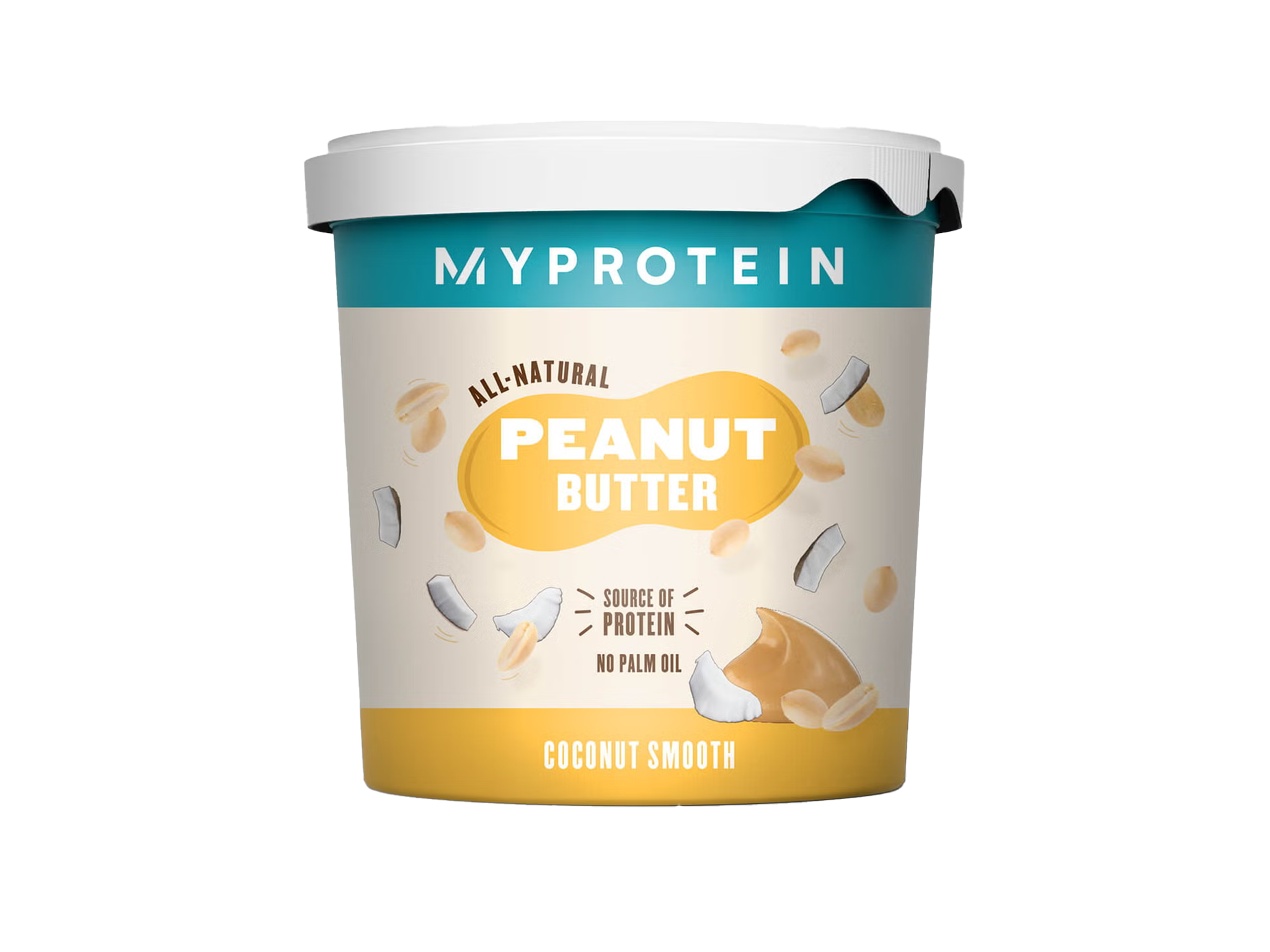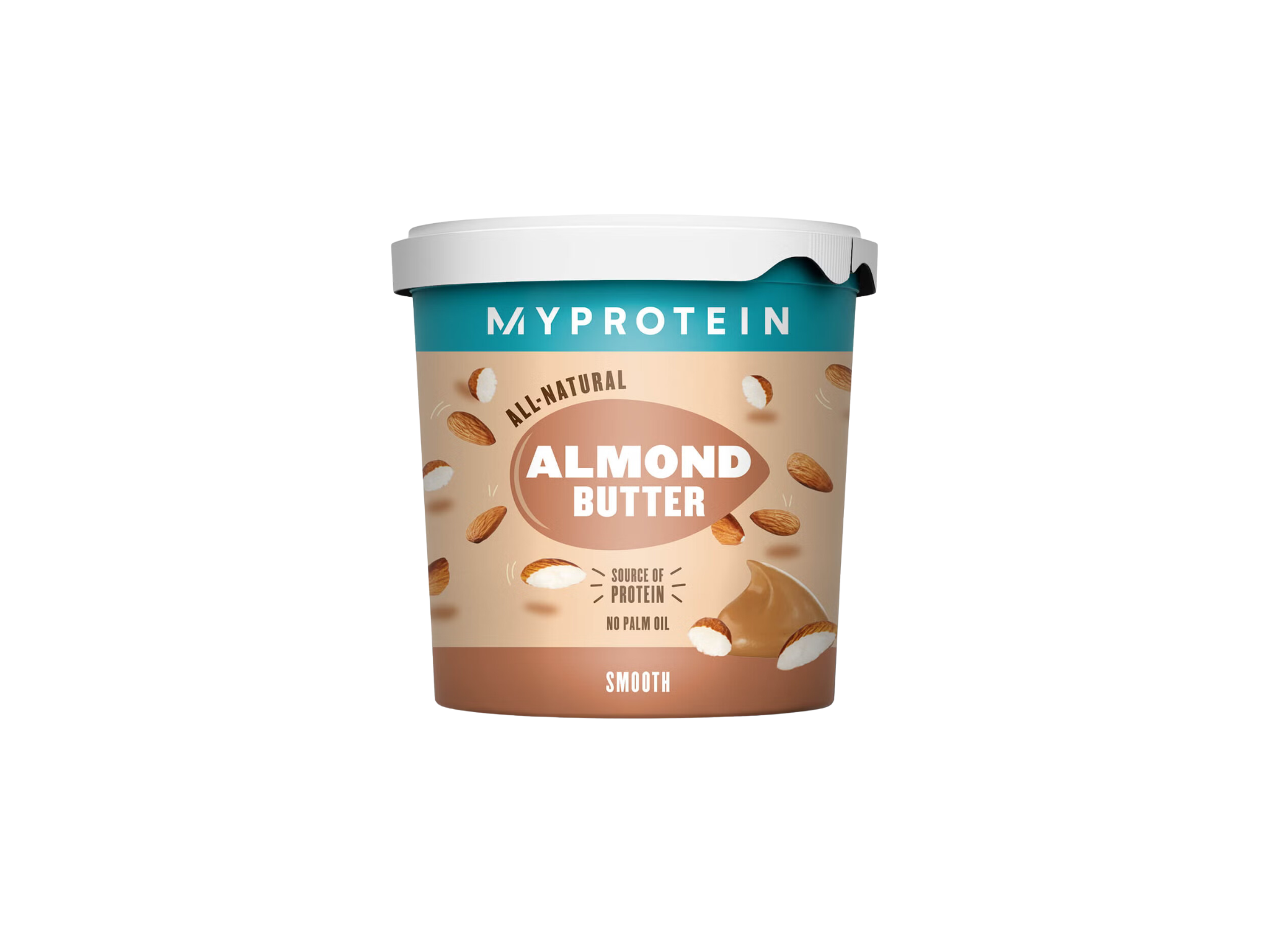Is almond butter better for you than peanut butter? A nutritionist shares all
A nutritionist compares the protein, fat and vitamins content of both butters


Your support helps us to tell the story
From reproductive rights to climate change to Big Tech, The Independent is on the ground when the story is developing. Whether it's investigating the financials of Elon Musk's pro-Trump PAC or producing our latest documentary, 'The A Word', which shines a light on the American women fighting for reproductive rights, we know how important it is to parse out the facts from the messaging.
At such a critical moment in US history, we need reporters on the ground. Your donation allows us to keep sending journalists to speak to both sides of the story.
The Independent is trusted by Americans across the entire political spectrum. And unlike many other quality news outlets, we choose not to lock Americans out of our reporting and analysis with paywalls. We believe quality journalism should be available to everyone, paid for by those who can afford it.
Your support makes all the difference.Peanut butter has long been a go-to snack for anyone trying to up their protein intake. Whether added to smoothies, spread onto fruit or as a topping on porridge, it’s filling, tasty and good for us.
But recently other types of nut butter, such as almond butter, are growing in popularity. Once considered a niche product, almond butter is now rapidly gaining popularity, offering a different nutritional profile to a peanut spread, as well as a slightly sweeter flavour.
While some peanut butters can have a savoury, almost salty, taste, there’s a marzipan-like edge to almond butter which some people are much keener on. However, almond butter is less readily available in supermarkets and tends to be more expensive.
With the help of expert nutritionist Valentina Cartago, aka The Italian Nutritionist, we investigated whether the nutritional benefits of almond butter justify the higher price tag and explore which nut butter is the best for your health.
What are the nutritional benefits of peanut butter?
One of peanut butter’s most notable attributes is its high protein content. “Peanut butter is not only delicious, but high in protein – 2 tablespoons equal around 7.2g of protein” explains Valentina. “It is also a source of healthy fats.”
These healthy fats, monounsaturated and polyunsaturated fats, are known to support heart health by helping to reduce levels of LDL (bad) cholesterol while maintaining or increasing HDL (good) cholesterol levels. Consuming healthy fats is also important for brain health, hormone production and the absorption of fat-soluble vitamins like A, D, E and K.
Read more: This easy overnight oats recipe is my go-to for a breakfast that keeps me full
Fibre is another beneficial component of peanut butter, contributing to digestive health and promoting a feeling of fullness, which can aid in weight management. Some experts say that starting the day with peanut butter for breakfast can not only benefit your heart health but it’s a great way to stay fuller for longer, so you aren’t tempted to snack before lunch.
Vitamins and minerals
“Peanut butter provides useful nutrients such as zinc, magnesium, B vitamins. vitamin E, fibre and phosphorus,” explains Valentina.
The humble nut butter contains significant amounts of Vitamin E, a powerful antioxidant that helps protect the body’s cells from damage caused by free radicals. Meanwhile magnesium plays a crucial role in numerous bodily functions, including muscle function, nerve signaling and bone health and phosphorus helps build strong bones and teeth.
Peanut butter flavours
As peanut butter has grown in popularity, so has the amount of variations. Purists may love the savoury, deep roasted nutty profile that has a salty edge. But those with a sweeter tooth might enjoy peanut butter flavoured with coconut, which adds a more tropical taste profile. The crunchy option offers a satisfying bite when you spread it on top of apples or pears, while a smooth butter improves the consistency of smoothies and makes them richer and thicker.
However, the taste varies depending on the quality of the peanut butter. “One word of warning is always choose the peanut butter with the least ingredients: ideally peanuts only,” points out Valentina. “But you can also find it worth peanuts and a little salt. I would avoid anything with added sugar, oils or emulsifiers. Keep it simple.”
For a winning breakfast, Valentina recommends mixing it with porridge. She says: “Make your porridge as you normally would, add cooked apples with cinnamon, then drizzle your nut butter on top and add some crushed walnuts for texture!”
The peanut butter to try
Myprotein crunchy peanut butter 1kg: £6.12, Myprotein.com

Made from 100 per cent roasted peanuts with no added sugars, salts, or oils, this peanut butter makes for a pure and wholesome snack. Its crunchy texture adds a satisfying bite, making it perfect for spreading on toast, adding to smoothies, or spreading onto fruit slices. With 30 grams of protein per 100 grams, it’s an excellent source of plant-based protein, supporting muscle growth and recovery after workouts. Additionally, it’s a great source of dietary fibre, aiding digestion and helping you feel fuller for longer.
What are the nutritional benefits of almond butter?
“Just like peanut butter, almond butter also provides you with healthy fats, fibre and protein,” points out Valentina. However, it does have less protein than peanut butter at 4.8g per 2 tablespoon.”
It’s also rich in dietary fibre, which helps with digestion and helping to maintain a healthy gut – a key benefit that many of us forget to consider when building a collection of reliable meals to see us through the week.
The fat content in almond butter not only supports cardiovascular health but also helps with nutrient absorption, provides long-lasting energy, and contributes to a feeling of satiety, making it a good option for those looking to cut down on snacking or manage their weight. Additionally, the fats in almond butter can help support brain health, hormone production and the quality of your skin.
Vitamins and Minerals
What almond butter lacks in protein, compared to peanut butter, it more than makes up with in terms of vitamins. Valentina explains: “It has a higher amount of vitamin E, magnesium, calcium and iron.”
Read more: Should you take cod liver oil? Health benefits explained
Vitamin E helps protect cells from oxidative damage and supports healthy skin and eyes. Almond butter provides a substantial amount of this vitamin, making it beneficial for skin health and immune function. Calcium plays a vital function in the strengthening of strong bones and teeth while iron is essential for oxygen transport in the blood and energy production. Finally, the potassium content in almond butter helps regulate fluid balance, muscle contractions, and nerve signals, contributing to overall cardiovascular health.
Almond butter flavours
Unlike many commercial peanut butters, almond butter often contains fewer additives, preservatives, and sugars, especially in its natural form. It has a sweeter taste and a milder flavour profile than rich peanut butter, so it’s gentle on the stomach.
“On the hotter summer days, you can make your own banana ice cream with nut butter,” suggests Valentina. “Simply pop a frozen banana in a food processor, blend away and add a little plant milk (1 tbsp) or regular milk if there are no issues with dairy and blend till smooth. I like to add the nut butter as it blends and then pop in a bowl and add pecans on top.”
The almond butter to try
Myprotein smooth almond butter 1kg: £15.99, Myprotein.com

Crafted from the finest roasted almonds, this creamy spread is a nutritional powerhouse packed with protein, healthy fats, and fibre. Each bite delivers vitamin E, an antioxidant that protects cells from damage, as well as magnesium for energy production and muscle function. It is also high in healthy monounsaturated fats, which are known for supporting heart health and aiding in the reduction of bad cholesterol levels. With around 21g of protein per 100g, this butter is a great choice for those looking to increase their protein intake, particularly in vegetarian or vegan diets.
The verdict: Peanut butter vs almond butter
Whether peanut butter or almond butter is better for you depends on your overall goals. If you’re just looking for a source of protein, then you’ll find more of that in a single serving of peanut butter. But if you are looking for a way to keep your heart and body healthy, then almond butter has more healthy fats and vitamins, according to the experts.
Valentina sums it up by saying: “Almond butter has a higher amount of vitamin E, but peanut butter is higher in folate. While both nut butters provide heart healthy monounsaturated fat, there’s a higher amount (about 25 per cent more) found in almond butter.”
Read more: 10 best peanut butters
Join our commenting forum
Join thought-provoking conversations, follow other Independent readers and see their replies
Comments